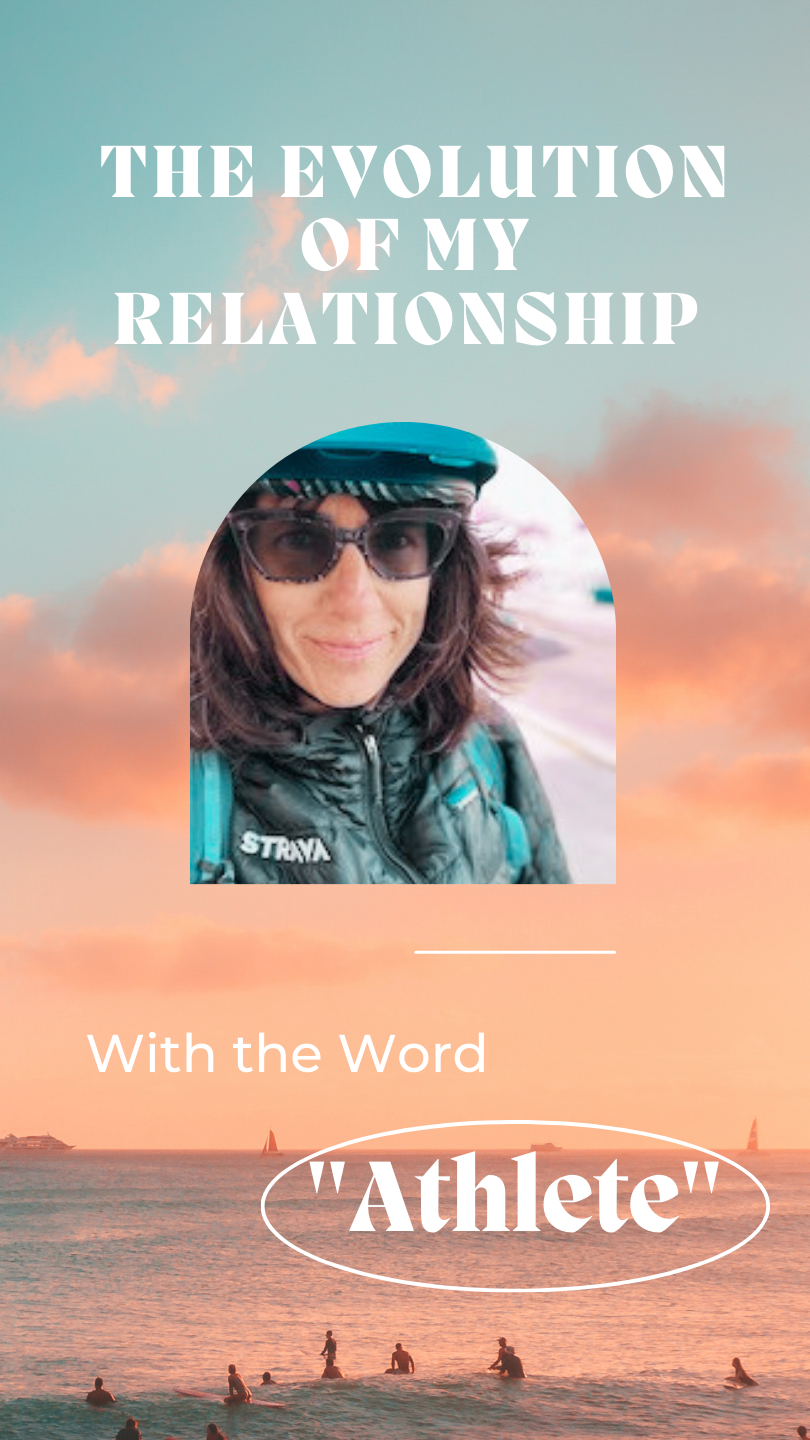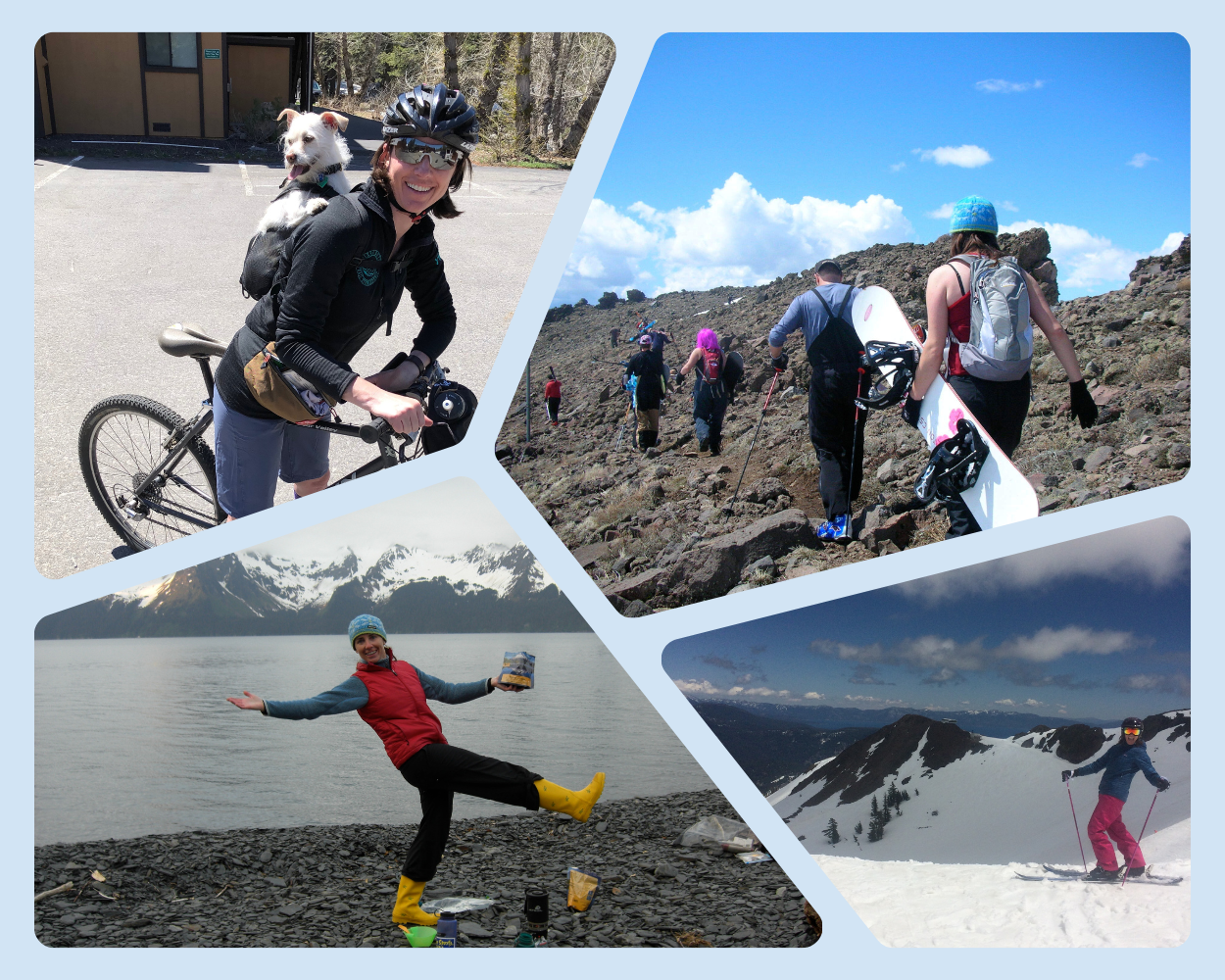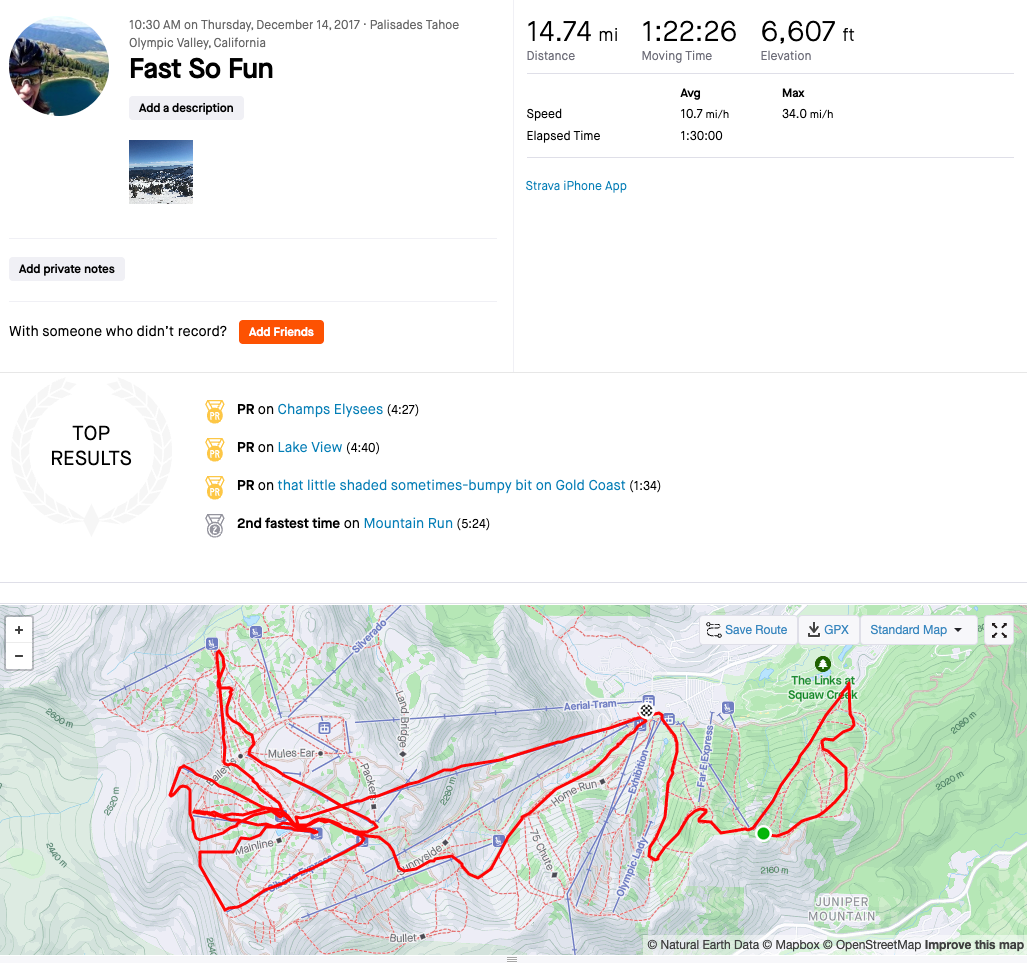I was 12 years old and pitching for my all-ages girls’ softball team. I placed the ball in my glove and lined up to pitch to a girl much younger and smaller than me. I wound my arm around and let the ball go.
A *GASP* erupted from the mothers in the stands.

I came to my awareness and noticed that the back of my mit was flush against my face. The girl had hit my pitch, andits trajectory had rocketed towards my face. I reacted with no hesitation, no thought-process. I had caught the ball strictly by instinct, and in doing so probably saved myself from a broken nose — or worse — a concussion.
Since I was a kid, I have always enjoyed playing sports and adventuring in nature. I enjoy challenging myself and seeing what my instincts can produce, as in my story described above.
But as I have gotten older and my physical activity interests have changed, so has my view of what being an athlete means to me.
To distill my meaning of the word “athlete,” I have come to this: Being an athlete is receiving enjoyment through exploration of human-powered movement.
There’s a myriad of experiences that have brought me to this conclusion, so let’s take a short little journey into the evolution of my relationship with the word “athlete.” Maybe some of my experiences might be similar to yours, as well.
Oh So Competitive
In elementary school I taught myself how to do flips on the bars at school — with my blisters and calluses being awards and triumphs for practicing or learning a new trick. I played kickball, baseball, rode bikes, went on hikes with my family, and swam in the lake during the summer.
In middle school, I played basketball and ran track — I was always pushing for that faster mile time; could I get it under 7:13? I tried.
In high school I found volleyball and everything changed. I was dedicated to my sport, I mean dedicated. I played on teams year-round, even attending volleyball camp two summers. I was invited to play on the varsity team my sophomore year, my senior year I was team captain and that same year I made the All-League and All-County teams.
I was driven to compete, and driven to win.
At tournaments and league games I argued with refs about calls — one particular tournament was on my birthday during my senior year in high school and I made a particular spectacle of myself, getting a “red card” and almost thrown out of the game, sheesh. Incidentally, many years later I worked for that same ref and when I asked him if he remembered me he said “yes,” extra-sheesh.
On days off from practice I would look for pickup games in parks. Often courts were filled with a bunch of men that I didn’t know, but I didn’t care. I knew I had technical skills and could keep up. I like earning my spot on the court and showing those men a thing or two about underestimating a young woman. I loved to play and I got after it all the time.
In my senior year of high school, I was recruited to play for a local junior college. I played there for two years, which ended up being a total disappointment. I had HORRIBLE shin splints and THE WORST AND MOST DEMEANING coach. The quality of my game play was slumping, and I could tell the tenure of my career was coming to a close. It was crushing and plummeted me into a bit of an identity crisis. So I took a break and gave myself some time to reflect.
I am a passionate person, fiery, and at the time I was processing the angst of growing up and not yet truly understanding myself. Anger, frustration, and anxiety were fuel for a healthy competitive drive in a way that felt fun; I mean it was totally fun.
After some time I began to wonder, was I really an “athlete” or just someone who found out that sports were a healthy way to let out a little steam — or, let’s be real, let out a lot of steam.
Further, I remember pondering that, if something had ever happened to me where I was unable to process emotions through sport, that I had to find another outlet to release all this energy inside of me. I felt like it was time for me to figure out how to express that energy without using my competitive nature as a crutch.
Volleyball was my first love, and my college experience was our breakup. It was time to move on and pursue other interests.

Pushing Personal Boundaries
I got my first mountain bike in 1997, a Trek. Shortly after purchase it was stolen from the deck of my college apartment in Flagstaff, Arizona. Heart-broken again, I quickly rebounded and got another bike that summer, a Marin Bear Valley. I still have that bike and use it to this day. It has adventured with me everywhere — from Arizona to Humboldt County, Wyoming to Anchorage to Kailua, Hawaii, and now to the Sierra Nevada Mountains. I love that bike.
Shortly after college, I started working at REI. It was there that my outdoor interests exploded. I canoed, climbed, ice climbed, kayaked, and backpacked. I bought a second bike, a cyclocross bike — for racing and riding in dirt and on the city streets. For three winters I dedicated my body to snowboarding and after a sprained thumb, multiple instances of whiplash, and cracked ribs from boarding into a tree, I went back to skiing.. and I skied and skied and skied.

I had transitioned from team sports to individual outdoor pursuits and I was having a blast. I loved getting out and exploring nature with gear, all the gear.
Unlike my relationship with sports, I felt like these activities were showing me the many faceted possibilities of my relationship with nature. I liked how these meanderings provided opportunities for growth in a grounded and expansive manner.
My competitiveness would rear its vibe now and then, but I would acknowledge it and then redirect it into other channels. This practice helped me disconnect the trait from my perception of needing it to be an “athlete.” It felt good, healthy… and to be honest it’s still a work in progress.
I noticed that my definition of being an athlete was evolving; it meant exploring the boundaries and abilities of my body and of getting to communicate with the natural world in a deeper way. This time of my life felt expansive and powerful.
Celebrating Balance
In the early 2000’s I lived in Anchorage, Alaska. That summer I worked for Princess Cruise Lines as a bartender for their rail division. PCL had double-decker railroad cars (dining car on the bottom and lounge/bar on top) that traveled from Anchorage to Fairbanks and were driven by engines from the Alaska Railroad. I met people from all over the world who had come to finally live out their Grand Alaskan Adventure. From their stories, many were unable to move the way they once did and, while they once had dreams of backpacking Denali, their current ailments meant that they would have to instead travel the land via rail car and bus, not entirely living out their dream, but doing it in the manner closest to what was acceptable for their body’s health boundaries.
That summer, I learned the most amazing lesson: life is fast and fleeting, to live it well and feel personal fulfillment, move in step according to your enthusiasm, strength, and drive at every age. In this way, we are always meeting ourselves in the present, exploring the junction where our body/mind/spirit are in sync, and therefore do not experience the regret of what we “should” have done at another previous stage of life. Personal contentment thrives in this zone.
All of that to say that I am older and slower now and these lessons have helped me be at peace with my new paces.
Some days are for a big bike ride, a canoe adventure, or maybe getting some skiing in, but most are to simply enjoy daily walking explorations with my wonderful partner and pup.
The evolution of my relationship with the word “athlete,” it’s pushed me beyond my original interpretation of someone who is into sports, on a team, or competitive.
Now, being an athlete means that my movement is focused on chatting with my body everyday and asking what it needs to feel like it is thriving, and I’m totally good with that.


